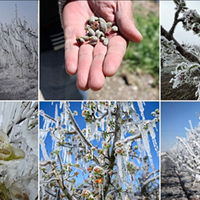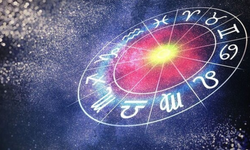Autumn depression often begins and ends at the same time. Although it is not seen that much in summer and spring, cases exposed to this depression are also observed. It begins towards the end of autumn and at the beginning of winter, and from the sunny days of spring until the end of summer, symptoms decrease. According to studies, seasonal depression is seen in 5% of the population. Seasonal depression can be seen in people of all ages. It generally occurs between the ages of 20-23 on average. In addition, research has proven that it is more common in women than in men, as in all other types of depression. If the person has a past, familial structure, genetics or a bad experience, it is considered normal to experience this type of depression.
What are the Effects of Seasonal Depression on Hormones?
In such cases, the hormones Melatonin and Serotonin come into play. Melatonin is a hormone that regulates our sleep. When it is dark, the hormone melatonin rises and begins to decrease when daylight increases. When melatonin rises, there is a decrease in energy and often lethargy. The body relaxes and you may be inclined to sleep. Serotonin is popularly known as the happiness hormone. As soon as we see the sun's rays, we experience an increase in serotonin and it helps us to enjoy our mood. With the approach of the winter months and the shortening of the days, the amount of serotonin also decreases. This is why, according to the researchers, these two substances are certain to have a great effect on us.
What are the symptoms?
* The state of being sad
* Despair and pessimism towards the world,
* Excessive desire to sleep
* Inability to enjoy activities previously enjoyed
*Loss of sexual desire,
* Constant desire to eat
* Problems with focus and concentration,
*While there is a state of minimizing social life, the symptoms of the person in the Spring-Summer months;
* Increase in sexual desire,
* Increased anxiety,
*Aggressive attitudes,
*Insomnia or other sleep-related problems
*It can be seen as weight and appetite loss
How Is Seasonal Depression Treated?
What distinguishes seasonal depression from other depressions is that it lasts for at least two years in a row and only a few months during the season. It is not seen in other seasons. Seasonal Depression symptoms are classified as mild, moderate and severe. While individuals who have difficulty in maintaining their daily lives get over it mildly, an increase in substance addiction and suicidal ideation can be observed in severe cases.
It can be treated with medication, psychotherapy, and phototherapy called light therapy. In phototherapy, it is done by providing support to the client by using light sources that imitate daylight briefly. Natural sunlight is continued until it comes, but according to doctors, it may have side effects for those with excessive eye disease and light-sensitive skin. Exercise and outdoor walks may be recommended for people with mild symptoms.
In order to prevent seasonal depression, it is useful to take care of being outside even if it is cloudy. However, if you open your curtains and blinds and let some daylight in, you may feel that your energy has risen a little. It may also help you to turn to low-carb foods.




























